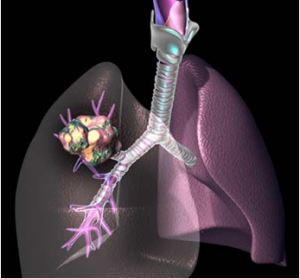When do I need to see a pulmonologist, and what to expect?
The respiratory system includes the lungs, trachea, bronchi, pharynx and other organs, and they help facilitate breathing. Suppose you have been diagnosed with lung disease or have trouble breathing, like shortness of breath (dyspnoea); your general practitioner may refer you to a pulmonologist. But what is the role of a pulmonologist? A pulmonologist is a specialist who diagnoses and treats respiratory conditions. These specialists are equipped with the experience and expertise required to address any respiratory illness that you may have. If you have not consulted a pulmonologist before, we will walk you through what can be expected at the clinic and how you can prepare for your visit.
What conditions do pulmonologists treat?
Pulmonologists are trained to diagnose and manage various lung diseases. Some conditions treated or managed by pulmonologists include, but aren’t limited to:
- Aspergillosis: This is a fungal infection caused by common mould (aspergillus) and causes breathing difficulties.
- Asthma: Bronchial asthma is a long-term condition that causes breathing difficulties due to the narrowing of the airways.
- Bronchiectasis: This condition occurs when the airways become widened, thickened, and permanently damaged, making the lungs vulnerable to infection.
- Bronchitis: In bronchitis, the airways (bronchial tubes) leading to the lungs are inflamed and filled with mucus resulting in a nagging cough.
- Chronic Obstructive Pulmonary Disease (COPD): COPD is a chronic inflammatory lung disease that causes airflow limitation and breathing difficulties.
- Emphysema: This type of COPD develops over time and damages the lung tissue due to noxious elements like cigarette smoke.
- Interstitial lung disease: Interstitial lung disease or diffuse parenchymal lung disease (DPLD) comprises a large group of diseases (over 200 conditions) that causes inflammation and scarring in the lungs.
- Lung cancer: Lung cancer or carcinoma refers to cancer that forms in the tissues of the lungs; this may spread to lymph nodes and other organs and may even lead to severe consequences and death
- Pneumonia: Pneumonia can be a viral, bacterial, or fungal infection that causes inflammation in one or both lungs. Symptoms include cough with phlegm or pus, fever, and difficulty in breathing.
- Pulmonary fibrosis: In this condition, the lungs become thickened and scarred, resulting in breathing difficulties.
- Pulmonary hypertension: This is a severe condition with abnormally high pressure in the blood vessels that supply blood to the lungs resulting in fatigue and shortness of breath.
- Sarcoidosis: This rare condition is characterised by clusters of inflammatory cells known as ‘granulomas’; the cause is unknown, but most evidence suggests that it occurs due to an aberrant immune response.
- Sleep apnea: If you snore loudly and still feel exhausted after a good night’s sleep, you may have sleep apnea; this potentially serious sleep disorder is characterised by frequent breathing ‘stops’ and ‘starts’.
- Tuberculosis (TB): TB is a potentially serious bacterial infection that mainly affects the lungs but can also affect other parts of the body.

What symptoms and signs indicate you need to consult a pulmonologist?
There are a number of symptoms and signs that may suggest a visit to the clinic. Let’s take a look at a few symptoms:
- Shortness of breath: If you have been experiencing breathing difficulties during physical activity or rest, this could indicate an underlying respiratory condition.
- Fatigue: Feeling tired after an activity is normal, but if you feel worn out all the time, this could be a sign of a lung condition such as COPD.
- Chronic cough: A severe cough or a lingering cough that has lasted for more than three weeks needs to be investigated.
- Wheezing: This is a high-pitched whistling sound that may occur while breathing; this may be a symptom of conditions such as asthma, pneumonia, bronchitis, and more.
- Recurrent colds or respiratory infections: Frequent infections need to be further investigated by a pulmonologist.
- Abnormal imaging investigation findings: If you have any abnormalities on your chest X-ray or CT scan, you may need to get it evaluated by a pulmonologist.
What to expect at the clinic and how to be prepared?
At first, the specialist will take a detailed medical and family history, followed by a physical examination. This is performed to determine the diagnosis and to commence the required management. Depending on your symptoms and medical history, they may also require a few investigations, such as a chest X-ray, spirometry, bronchoscopy, or a CT scan, to make the proper diagnosis.
Being prepared before your appointment will help you make the most out of your visit. Make sure that you bring any relevant past medical records and make a note of your past and current medications, including any over-the-counter (OTC) supplements or vitamins.
It is advisable to wear loose-fitting and comfortable clothing, as you may be required to undergo tests that require deep breathing or physical activity. If you have any questions or concerns, don’t forget to write them down so that you can get them clarified at the clinic. Lastly, it is recommended that you bring a family member to accompany you at the appointment. This will help you be at ease and free from anxiety or stress.
